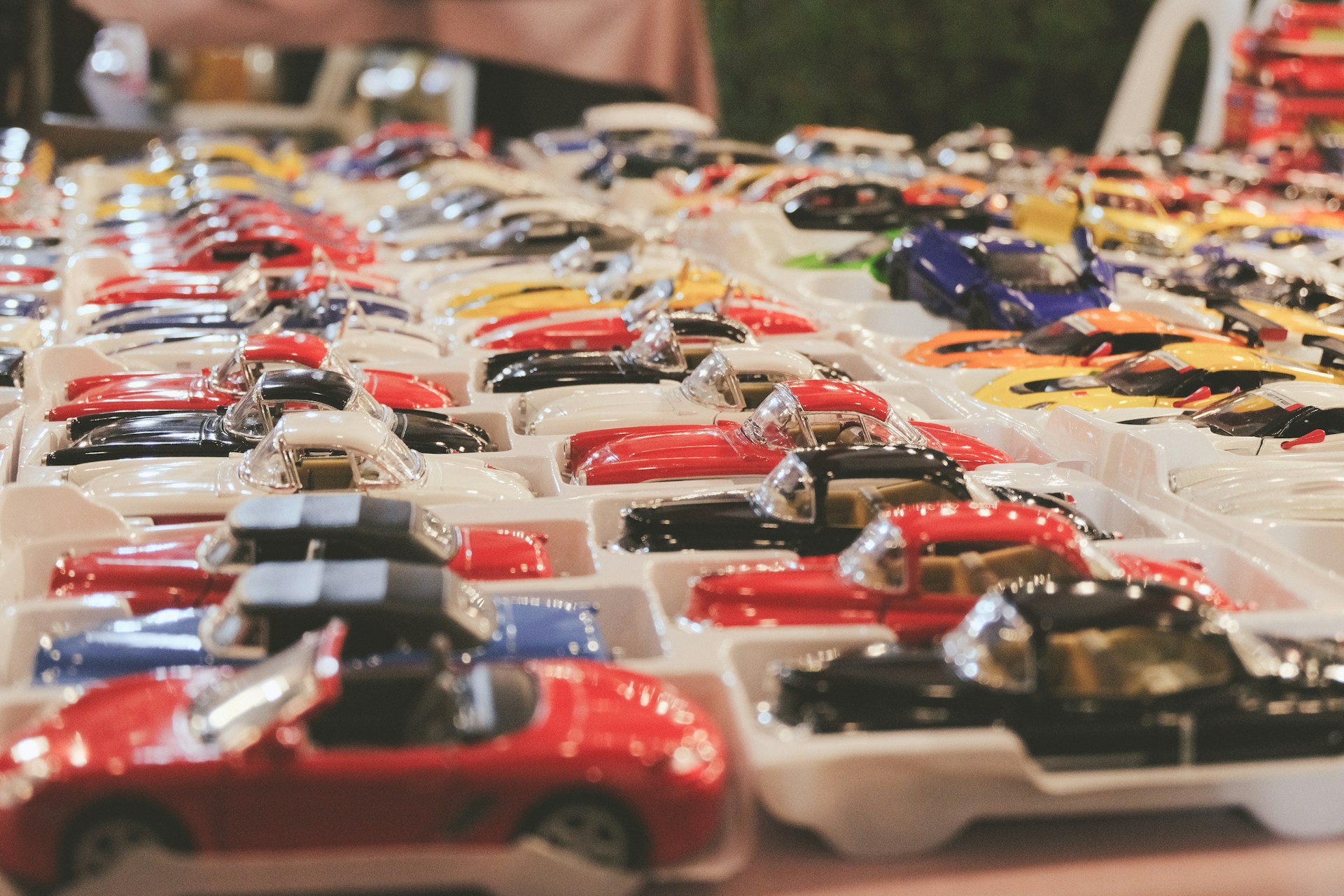Contents
Step into the exciting world of car auctions, a one-of-a-kind marketplace where professional dealers and individual purchasers come together with one objective in mind: to locate the ideal vehicle. Between the rhythm of the auctioneer’s shout and the noise of the audience, there is a road to an excellent deal, whether you’re contributing to a dealership’s inventory or looking for your dream automobile. This information is intended for both experienced bidders and first-time auction visitors. We’ll look at the details of vehicle auctions, providing insights and methods to help you navigate this thrilling world with confidence. Are you ready to learn how to buy a car at auction? Let’s discover the keys to effectively purchasing a car at auction, where opportunity meets skill at every turn.
Table of Content
- What Does a Car Auction Sale Mean?
- Types of Car Auctions
- Public Car Auctions
- Online Car Auctions
- Car Dealer Auctions
- How to Buy a Car at a Public Auction
- How to Buy a Car at an Online Auction
- Understanding Vehicle Value
- Useful Auction Tips
- After the Auction: Next Steps
- FAQ
What Does a Car Auction Sale Mean?

A car auction is an event where vehicles are sold to the highest bidder. It’s a fast-paced environment where cars change hands quickly, often at lower prices than you’d find at a dealership. Understanding how car auctions work is key to making a successful purchase. The atmosphere at these events is charged with energy, as each bid brings a car closer to its new owner. Experienced buyers know that timing, knowledge, and patience are essential. They watch the crowd, gauge interest in each vehicle, and strike when the moment is right. For newcomers, observing a few auctions first can be invaluable, offering insights into the rhythm and strategies that govern these exciting events. The key is to stay informed and adaptable, as every auction brings new opportunities and surprises.
Types of Car Auction
There are various types of car auctions, each catering to different needs. Public auctions are open to everyone, offering a wide range of vehicles. Online auctions allow you to bid from anywhere, providing convenience and a vast selection. Car dealer auctions are exclusive to licensed car dealers, offering a platform to buy cars for resale. In addition to these, there are also government and police auctions, where seized or surplus vehicles are sold. These often feature unique vehicles that can be acquired at competitive prices. Specialty auctions focusing on classic or exotic cars also exist, catering to collectors and enthusiasts. Each type of auction presents its own set of opportunities and challenges, making it important for buyers to choose the right one to meet their specific requirements, whether they’re looking for a daily driver, a project car, or a rare gem to add to their collection.
Public Car Auctions
Public auctions are accessible to the general public, making them a popular choice for many. These auctions often feature a diverse array of vehicles, from used cars to classic cars. Attending a public car auction can be an exciting way to buy your next vehicle. At an auto auction, each auction vehicle is unique, and most auctions offer a wide range, including the occasional salvage car. It’s important to research the auction houses you plan to visit, as each may have different policies and types of vehicles. Always check the vehicle’s history and, if possible, arrange for a test drive. This is crucial to ensure that you know exactly what you’re bidding on. Remember, a car might look great on the outside, but it’s its performance and condition that truly matter.
Online Car Auctions
Online auctions offer the flexibility to bid on vehicles from the comfort of your home. With a simple search online, you can access a multitude of auctions and a broader range of vehicles. Online car auctions as SCA have grown in popularity due to their convenience and accessibility. When buying a car through an online car auction, it’s crucial to thoroughly research each car at an auction before placing a bid. This includes understanding the car’s condition, market value, and any additional fees that may apply. Online platforms often provide comprehensive details and photographs, making it easier to make an informed decision. Additionally, consider the logistics of receiving the car post-auction, as this is an integral part of the online car buying process.
Car Dealer Auctions
Dealer auctions are exclusive events where licensed car dealers can acquire vehicles for their inventory. Access to these auctions requires a dealer license, making them a hub for business buyers like used car dealers. For a private party interested in buying a car, acquiring access might involve partnering with a licensed dealer. This collaboration can be a strategic move to save money, especially when looking for used cars. As a business buyer, having a dealer’s license or a business license opens doors to a wider range of vehicles, often at lower prices than retail, enabling dealers to expand their offerings and cater to diverse customer needs. Dealer auctions, therefore, are not just about buying and selling; they’re about forging connections and exploring a vast market of possibilities.
How to Buy a Car at a Public Auction

To buy a car at a public auction, first research ahead and understand the auction process. Know the starting price of the vehicles you’re interested in and prepare to make your bid. Winning a car at auction requires quick thinking and a clear strategy. Before the auction starts, familiarize yourself with the types of vehicles available, especially if you’re seeking a used car or a new car. Live auctions can be fast-paced, so decide beforehand the maximum amount you’re willing to spend. This is crucial for a public buyer who might only be interested in one car. Stay focused, and when the moment comes, place your final bid confidently. Remember, the goal is to secure your desired vehicle at a price that aligns with your budget and needs.
How to Buy a Car at an Online Auction
Buying a car at an online auction is straightforward. Register on the auction website, search for your specific vehicle, and place your bid. Online auctions provide detailed information about each car, including the car’s history and vehicle identification number. As a potential winning bidder, it’s vital to understand the concept of reserve price – the minimum price the seller is willing to accept. If your bid wins, be ready for the next steps, which often include finalizing payment and arranging for the purchase’s home delivery. Remember, buying cars through a live auction online combines convenience with a wide selection, allowing you to make informed choices from the comfort of your home.
Understanding Vehicle Value
One key to success in car auctions is a thorough understanding of vehicle value and depreciation. This is more than simply understanding the market price; it also entails determining the intrinsic value of a vehicle based on factors such as make, model, age, condition, and rarity. Take advantage of available online resources such as vehicle history reports and appraisal tools. Keep up with market trends and variations in car values. This knowledge can assist you in identifying discounted cars that could provide a significant return on investment, as well as avoiding overbidding on a car that is not worth a high price. Remember that information is power in the fast-paced world of vehicle auctions.
Useful Auction Tips
To succeed at an auction, understand the value of the cars you’re interested in and set a budget. Be aware of additional costs like registration fees and transportation costs. Stay calm during the bidding process and bid wisely to secure the best deal. Knowing when to bid and when to hold back is crucial. Watch other bidders and the auctioneer for cues on how the auction is progressing. Be prepared for competitive bidding, especially on popular models. Researching the typical auction prices for the cars you’re interested in can give you an edge. Remember, patience and informed decision-making are your best allies in securing a valuable purchase at a car auction.
Understanding the terms and conditions of each auction is just as crucial. Different auction houses may have different policies regarding warranties, refunds, and payment options. To minimize surprises, familiarize yourself with these details ahead of time. Consider how market changes affect the types of vehicles offered and their prices. Economic variables, new model releases, and seasonal variations can all have an impact on the types and conditions of cars available for auction. Keeping this broader viewpoint in mind allows for more strategic bidding decisions. Finally, combining meticulous research, smart planning, and good observation will significantly improve your chances of winning at a car auction.
After the Auction: Next Steps
Once you’ve put in the winning bid, the trip doesn’t end. The post-auction process is crucial. Pay soon, as most auctions have strict payment terms. Next, think about the logistics of transporting your new car. If the auction location is remote, you may need to hire a transportation service. Then complete any appropriate documentation, such as transferring the title and registering the car. It’s also a good idea to have the car inspected and serviced so that it matches your expectations and is safe to drive. These final steps are critical in the transition from a successful bidder to a satisfied owner.
Car auctions are a fantastic way to buy cars at competitive prices. Whether it’s a public auction, online auction, or dealer auction, understanding how these auctions operate is crucial. With the right preparation and knowledge, you can drive away with a great vehicle at a fraction of the usual cost.
FAQ
Is It Better to Bid Early or Late at an Auction?
It often depends on the auction and the vehicle. Placing a low bid early can be a strategy, but sometimes waiting and observing can lead to a winning bid.
What Is the Best Month to Buy a Car at an Auction?
The best month can vary, but typically, the end of the year or financial quarters can see an influx of cars at auctions, potentially leading to better deals.
Why Do Dealers Sell Cars at Auto Auctions?
Dealers sell cars at auctions to quickly move inventory, particularly for vehicles that may not be in high demand at their dealership. This helps them free up space for new cars.




